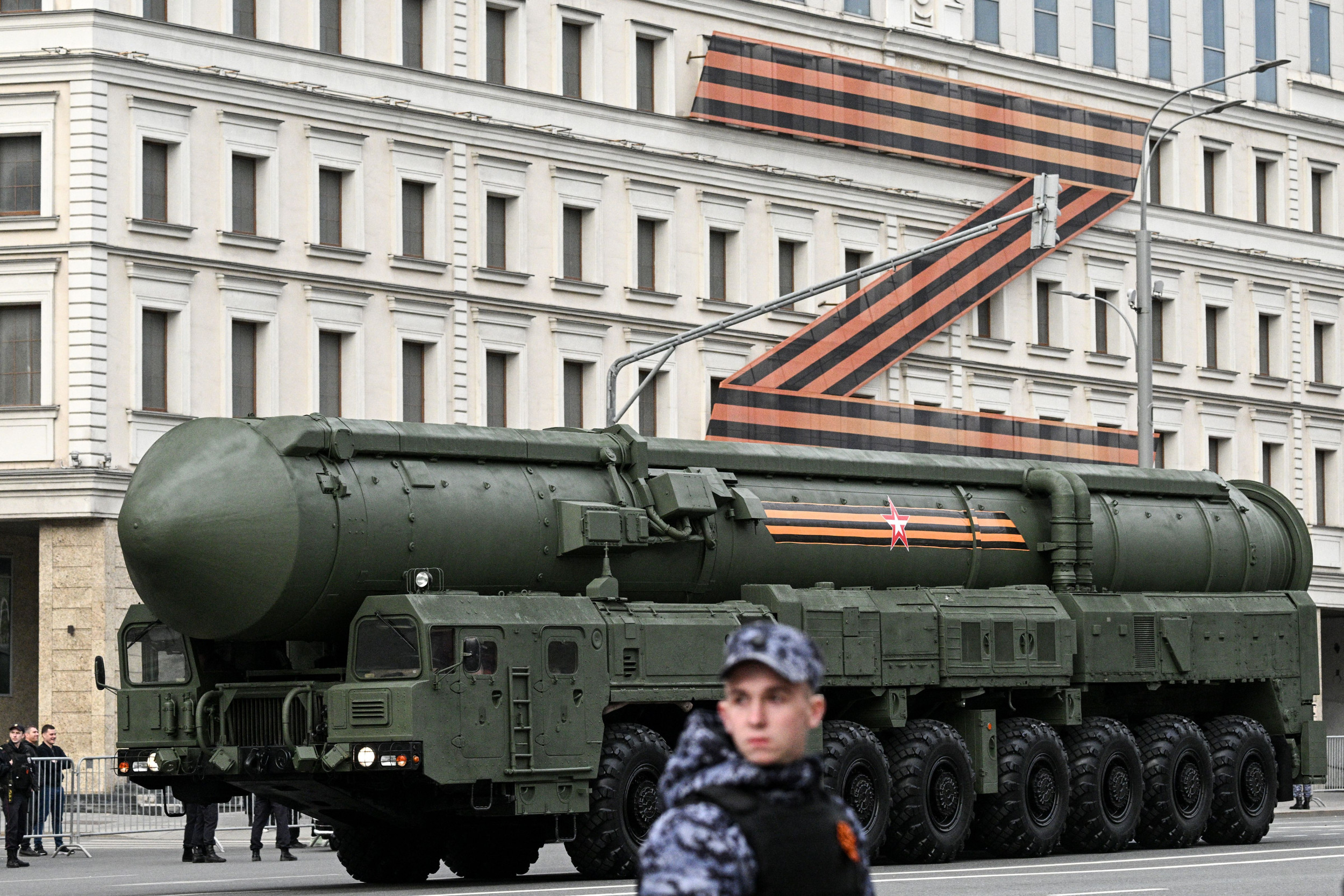Russia is likely stockpiling missiles to preserve them for winter attacks on Ukraine, according to British intelligence.
The U.K. Ministry of Defense (MOD) said in an intelligence update on Friday that Russian Air Force Long Range Aviation (LRA) aircraft have not conducted a strike against Ukraine for three weeks, since September 21.
That’s despite Kyiv continuing with its grinding counteroffensive to reclaim the territories seized by Russian forces in the ongoing war. Ukraine’s counteroffensive is now in its fifth month, with particularly heavy clashes taking place along the front lines in the Donetsk and Zaporizhzhia regions.
“While such breaks have not been unusual, the last similar break in strikes occurred between 9 March and 28 April 2023, a period of 51 days,” defense officials said.
The British MOD said that in that instance it was likely that LRA had almost depleted its stocks of capable AS-23 missile munitions following its winter campaign against Ukrainian critical national infrastructure.
Putin ramped up missile attacks on Ukraine’s infrastructure last winter, causing residents to be disconnected from the electricity grid, with those in Kyiv, Odesa, and western Ukraine worst affected.
“This time, it is likely that Russian LRA are preserving existing stocks of AS-23 missiles as well as using this pause to increase useable stocks in anticipation of further heavy strikes against Ukraine over the winter,” defense officials said.
The intelligence update noted that recently, Russia has focused its airstrikes against grain-related facilities across the south of Ukraine, using SHAHED one-way-attack uncrewed aerial vehicles.
“This included strikes against Ukrainian Danube River ports, which likely required a high level of accuracy due to the target’s proximity to the Romanian border,” it said, adding that Russia likely used its SHAHED one-way-attack uncrewed aerial vehicles on these targets because of their better accuracy over other types of air-launched missiles.
Newsweek reached out to Russia’s Defense Ministry via email for comment.
Ahead of a possible winter blitz by Russia on Ukraine’s critical infrastructure, Oleksiy Chernyshov, the head of Ukraine’s state-owned energy giant Naftogaz, told Newsweek last month that Kyiv is “more prepared” than it was in 2022.
“We expect Russia to continue serious missile attacks and drone attacks on our energy and infrastructure objects,” Chernyshov said. “Their task is to deprive Ukrainians of basic services in heating, gas supply, electricity supply and others, and to actually target their morale and emotions.”
“Ukrainians are more prepared,” Chernyshov said. “They are more protected. We have prepared certain protections for our assets: energy production, gas distribution, gas storage, oil storage, oil refineries.”
“Russia is also prepared. Both sides are smarter after the previous winter. The Russians will prepare more sophisticated attacks…They are using more sophisticated methods, so the risk is high,” he added.
Do you have a tip on a world news story that Newsweek should be covering? Do you have a question about the Russia-Ukraine war? Let us know via worldnews@newsweek.com.

